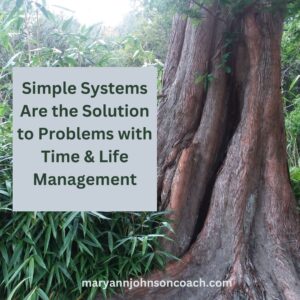 I have learned from lived experience that simple systems are usually the solution to difficult problems in time and life management. This was not an easy lesson to learn, and I occasionally still ignore this truth, but when I do, I suffer.
I have learned from lived experience that simple systems are usually the solution to difficult problems in time and life management. This was not an easy lesson to learn, and I occasionally still ignore this truth, but when I do, I suffer.
A few years ago, I was praying because I needed help with time management to do the necessary chores, serve others, and care for my family. I also needed space to serve and care for myself. This is an ongoing prayer I repeat regularly because time & life can be a beast to manage. LOL
My System for Getting Up
During this season of prayer and pondering, I had a task on my daily list that I needed to accomplish by a certain time, and it was clear in my mind. As I went to sleep, I reminded myself I had this task to do first thing in the morning. When I woke up, the project came immediately to mind, and I got right up. It was a favor for my sister, Cindy. She needed an item in short supply that year that she hadn’t been able to find in her area. I needed to be at the store at 7 am to see if I could find it for her. I was on time, and my quest was successful.
The next day, I woke up just before my alarm went off, as I had the day before. I had the same list for the day but hadn’t picked something to get up for. I lay in bed for a few minutes, and the alarm went off. I thought, “My body is amazing. It knows just what to do. It always wakes up a few minutes before the alarm.” Then I dropped back to sleep. I didn’t wake up again until 7:30 and was bugged because my body had done its job waking me up, and I hadn’t done my part and gotten up.
As I said my morning prayer, it came to my mind that I manage better upon waking when I have chosen a specific thing to get up for. It gives me a reason to get up, other than just managing another busy day. They’re all busy!! Since then, I have filled out my daily worksheet and picked one item to focus on when I rise. That has worked wonders in assisting me, even when I would rather sleep longer. I know this experience was an answer to my prayers. It gave me the knowledge I needed about myself and a system to solve the issue. I love how God answers prayers. : )
A few months into this experiment, I didn’t get to bed until 10 p.m., which is late for me in the winter. I try to be in bed by 9:30 because winter and the lack of sun make life more challenging. So, good sleep matters.
I had chosen a specific project I needed to have done before 9 am, and it would take a couple of hours. This was what I would get up for. However, I didn’t hear my alarm. Fortunately, Don did and put his hand on my shoulder, waking me up. Before he could say a word, I remembered what I needed to do, and I was out of bed and going in seconds.
It reminds me of when I was writing my book, and it wasn’t going well. As I prayed about the futility of the project, I had the thought to get up at 4 and write until I had to get ready for work at 7. What a terrible idea!! But because I had a specific task, I made it work six days a week for over six months! It wasn’t easy, but the planned task made it doable, and I finished and published my book.
I have gotten very good at using this system to assist me in getting up when I would rather sleep. It isn’t perfect. I have days when I forget to tell myself why I am getting up the next morning. Then chances are, I won’t. There are also days when I choose to ignore why I’m getting up. I always regret it! LOL Then there are days that I tell myself we are sleeping in, and it is OK.
Examples of Other Simple Systems
Example 1 – I wasn’t getting my scriptures read, my prayers said, my affirmation/commitments read, or writing in my gratitude journal some days. This matters to me, so I needed to figure it out. If I left the bathroom in the morning without doing these things, I would become distracted and wouldn’t get them done. As I prayed and pondered the situation, I began having interesting ideas.
I put my scriptures, gratitude journal, and affirmation/commitments in a basket in the bathroom. I hung my clothes for the next day on a hook so I wouldn’t need to go back to the bedroom. After dressing, brushing my teeth, and combing my hair, I would read a few verses, pray, read my affirmations, and write in my gratitude journal.
While experimenting with this routine, I ran into another problem. My glasses would be on the kitchen table, and if I went to get them, then distractions happened. Now I put my glasses on my desk at night, which is in the bedroom. Walking past the desk in the morning, I grab the glasses. It’s working like a charm; it’s another piece of a very simple system.
If I wanted to use my phone to read, rather than a hard copy, it would be an easy adjustment. I plug my phone in at my desk in the bedroom. When I get my glasses, I could also grab the phone.
Hanging my clothes in the bathroom, having my scriptures in a basket, and having my glasses on the desk in the bedroom is a simple system.
Example 2 – Filling out my daily worksheet the night before is another successful system. I dress and have my bathroom routine, but I also need to know what is planned for the day. What appointments do I have? Any special chores? Any service I need to manage? Stuff for Jodie, my grands, my mom, or Don?
Filling out my worksheet before bed helps me order the coming day. That doesn’t mean everything will get done, but it helps me recenter when disruptions happen. It keeps the flow going.
Example 3 – A year ago, I got a CPAP machine. After an evaluation, I discovered I stopped breathing many times a night. This is detrimental to brain function and not a good way to get the needed rest to manage a home and family.
An app. tracks how many hours a night the machine is used. At my follow-up appointment, I was on the border of qualifying to have insurance continue paying for my machine. I was only using it 70% of the time. Talking with my doctor, I realized the problem. I wake up a few times at night. I don’t have trouble going back to sleep, as I have trained my body. I often fall asleep so quickly that I don’t get the mask on. I needed a simple system.
I decided that when I awoke and took off the mask, I would place it in the middle of my pillow instead of at the back of the pillow. Super simple, and it has worked wonders. I’ll bet I have upped my score to over 85%. That is good for insurance purposes but even better for good sleep and a healthy brain.
Seriously, systems work. They help solve problems like mine: how to make myself get up, how to manage time better, how to fit in the things that normally get buried under home and family management, how to keep going when disruptions happen, and how to have a healthier brain.
I want you to see that simple systems can be very effective. I also want you to understand what a system looks like. I didn’t for many years. I thought they were complicated ways of managing big stuff. Systems in corporations, businesses, or medicine can be complex, and most of us view the term ‘system’ in this light. I want to expand your view of what a system is. It is nothing more than figuring out a consistent way to get something accomplished – dishes, laundry, meals on the table, getting kids up on a school morning, making time for yourself, getting to bed on time, getting your personal study done, etc. They all require a planned and not a default system. When you create a plan and consistently use it, you will have systems that work.



 Parenting is a place to learn to grow as a person. Seriously. : ) Even now, when I’m caregiving, rather than parenting, I experience examples of this type of growth. It always takes me off guard because I would like to think that in almost 75 years, I had gotten this growth thing handled. Silly, because learning and personal growth are a lifetime endeavor.
Parenting is a place to learn to grow as a person. Seriously. : ) Even now, when I’m caregiving, rather than parenting, I experience examples of this type of growth. It always takes me off guard because I would like to think that in almost 75 years, I had gotten this growth thing handled. Silly, because learning and personal growth are a lifetime endeavor.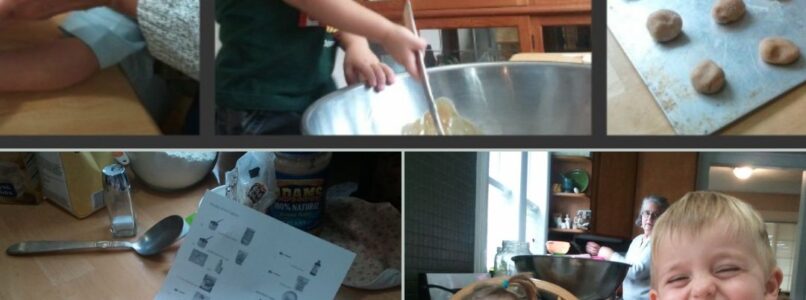
 Let’s pick up where we left off last week. I shared
Let’s pick up where we left off last week. I shared 
 Thirteen years ago, I had a wonderful evening with my eight-year-old friend, Hailey. It was successful because time had been set apart for the activity, it happened consistently so Hailey could count on it, and I was present. When we want to solidify relationships in our family these three ingredients make all the difference.
Thirteen years ago, I had a wonderful evening with my eight-year-old friend, Hailey. It was successful because time had been set apart for the activity, it happened consistently so Hailey could count on it, and I was present. When we want to solidify relationships in our family these three ingredients make all the difference. 

 On March 3, 2024, I published an article titled
On March 3, 2024, I published an article titled 
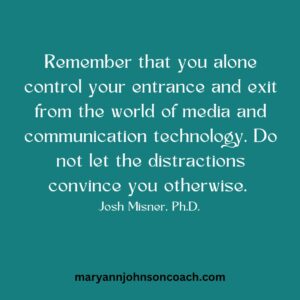 In our world, we’re so used to having technology always with us that it’s challenging to be without it for even a short time. Technology, as wonderful as it is, can be
In our world, we’re so used to having technology always with us that it’s challenging to be without it for even a short time. Technology, as wonderful as it is, can be 
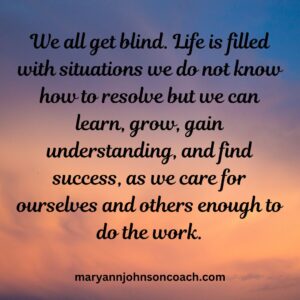 Early this spring Jodie was taking a short trip. She hauled the suitcase out of the garage so she could pack. Later, she asked me if I had seen it. No, I hadn’t but I went upstairs to help her look. We searched everywhere and then lo and behold we saw it! It was leaning up against the wall by the front door, in direct sight. It wasn’t hidden by anything. We weren’t looking for the obvious, I guess.
Early this spring Jodie was taking a short trip. She hauled the suitcase out of the garage so she could pack. Later, she asked me if I had seen it. No, I hadn’t but I went upstairs to help her look. We searched everywhere and then lo and behold we saw it! It was leaning up against the wall by the front door, in direct sight. It wasn’t hidden by anything. We weren’t looking for the obvious, I guess.
 I had a funny conversation with a single dad. We were talking about how to keep things clean and how to get our kids to clean. I noticed he wasn’t an efficient housekeeper. He felt he was doing ok, and it was ok, just not very clean. : ) This comes from someone who was a professional housekeeper for almost two decades.
I had a funny conversation with a single dad. We were talking about how to keep things clean and how to get our kids to clean. I noticed he wasn’t an efficient housekeeper. He felt he was doing ok, and it was ok, just not very clean. : ) This comes from someone who was a professional housekeeper for almost two decades.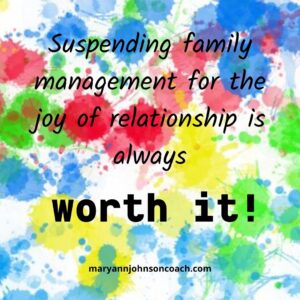

 I have the privilege of having a granddaughter with severe cerebral palsy. Whenever anyone finds out they always respond with, “Oh, I am so sorry.” They don’t need to be sorry. Maggie is one of the happiest human beings I know. Her mother loves her and magnificently cares for her. I have the privilege of living in a four-generation home and I see what having a special needs child can entail. There is no getting around how challenging it is, but there is also no getting around how rewarding it can be, how you are changed and privileged to grow.
I have the privilege of having a granddaughter with severe cerebral palsy. Whenever anyone finds out they always respond with, “Oh, I am so sorry.” They don’t need to be sorry. Maggie is one of the happiest human beings I know. Her mother loves her and magnificently cares for her. I have the privilege of living in a four-generation home and I see what having a special needs child can entail. There is no getting around how challenging it is, but there is also no getting around how rewarding it can be, how you are changed and privileged to grow.
 Anne Murdock just retired from decades of working with special needs children. That is our big link, as I have a special needs granddaughter. We met in church and became fast friends. Although I moved, we have stayed in touch. Recently we began meeting for lunch. We each drive about 30 minutes and it has been fun.
Anne Murdock just retired from decades of working with special needs children. That is our big link, as I have a special needs granddaughter. We met in church and became fast friends. Although I moved, we have stayed in touch. Recently we began meeting for lunch. We each drive about 30 minutes and it has been fun.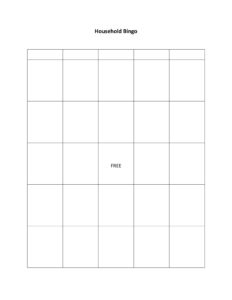
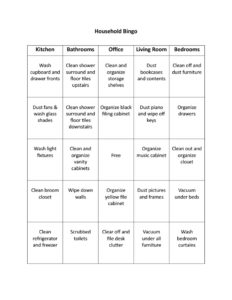 “bigger” tasks, maybe more than 20 minutes. She designed this card with ‘things that are bugging me’ in mind.
“bigger” tasks, maybe more than 20 minutes. She designed this card with ‘things that are bugging me’ in mind.